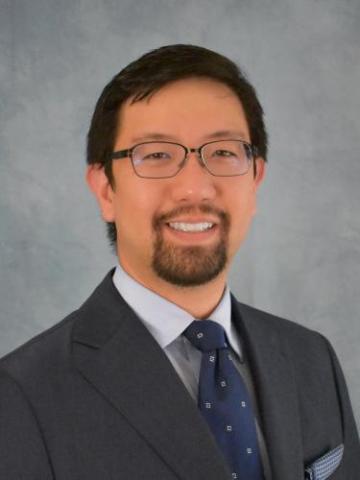
Raymond Suhandynata, Ph.D., DABCC
Adjunct Professor
Skaggs School of Pharmacy and Pharmaceutical Sciences
Dr. Suhandynata's research is focused on the development and validation of laboratory developed tests (LDTs) in the clinical laboratory, development of mass spectrometry based approaches to detect antibiotic resistant bacteria, identification of novel psychoactive substances, development of new approaches to measure biologics/proteins in clinical specimens, and development of LC-MS/MS assays for the measurement of cannabinoids, drugs of abuse, and therapeutic drug monitoring. His current interests are focused in clinical chemistry, pre-clinical drug development, and applications of mass spectrometry in the clinical laboratory.
Education: PhD (2016) Stony Brook University; ComACC Clinical Chemistry Fellowship (2019-2021) University of California San Diego Health, Center for Advanced Laboratory Medicine
Awards and Honors: Williams Roberts Young Investigator Award with Distinction (2021).
- Laboratory Medicine (SPPS 216)
- Regulatory Submissions and Strategy (DDPM 203)
- Medical Cannabis Science and Pharmacology (SPPS 250)
- UCSD ComACC Clinical Chemistry Fellowship (Associate Director)
- Clinical validation of six independent COVID-19 serology assays used for patient testing.
- Characterized the kinetics of the SARS-CoV-2 serology and neutralizing antibody profile in COVID-19 patients.
- Developed a rapid LC-MS assay for detection of ESBL producing Enterobacteriaceae in native urine specimens.
- Developed LC-MS/MS assays to support clinical studies investigating the effects of cannabis (driving, autism, and HIV associated neuropathic pain)
- Implementation of a broad-spectrum drug screening platform to screen clinical urine specimens for novel psychoactive compounds.
- Designed and completed quality improvement projects using Lean Six Sigma approaches to improve the utilization of laboratory space at the rapid response laboratories at UCSD’s Jacobs and Hillcrest medical centers.
- Lund K, Menlyadiev M, Lee K, Kelner MJ, Fitzgerald RL, Suhandynata RT. (2023) Comparison of two highly sensitive benzodiazepine immunoassay lab developed tests for urine drug testing in clinical specimens. J Mass Spectrom Adv Clin Lab. 28:91-98
- Suhandynata, R.T. et al. (2021) SARS-CoV-2 Serology Status Detected by Commercialized Platforms Distinguishes Previous Infection and Vaccination Adaptive Immune Responses. J Appl Lab Med 6(5):1109-1122
- Suhandynata, R.T. et al. (2022). Mass-Spectrometry Based Detection of Beta-Lactam Hydrolysis Enables Rapid Detection of Beta-Lactamase Mediated Antibiotic Resistance. Laboratory Medicine 53(2):128-137
- Suhandynata, R.T. et al. (2020) Longitudinal Monitoring of SARS-CoV-2 IgM and IgG Seropositivity to Detect COVID-19. J Appl Lab Med 5(5):908-920
- Suhandynata, R.T. et al. (2020) Commercial Serology Assays Predict Neutralization Activity Against SARS-CoV-2. Clinical Chemistry. 67(2):404-414.
- Suhandynata, R.T. et al. (2019) Recruitment of the Ulp2 protease to the inner kinetochore prevents its hyper-sumoylation to ensure accurate chromosome segregation. PloS Genetics 15(11):e1008477
- Suhandynata, R.T. et al. (2016). Identification of putative Mek1 substrates during meiosis in Saccharomyces cerevisiae using quantitative phosphoproteomics. PloS One 11(5):e0155931
- Quantitative LC-MS/MS development for pre-clinical and clinical studies.
- Untargeted LC-MS/MS assay development for proteomic studies.
- Identification of novel psychoactive compounds in the patient population.
- Bioanalytical assay development for exogenous and endogenous analytes.
- Metabolite identification by high resolution LC-MS/MS